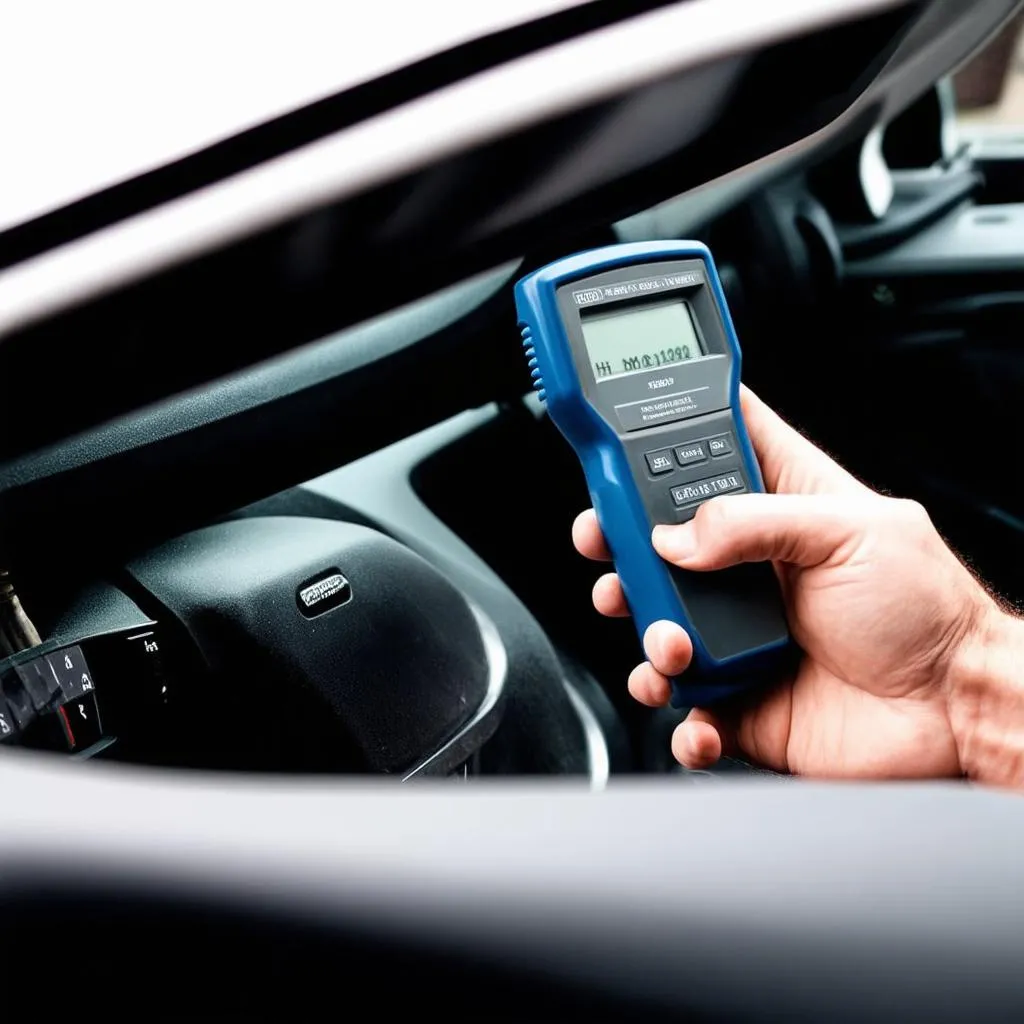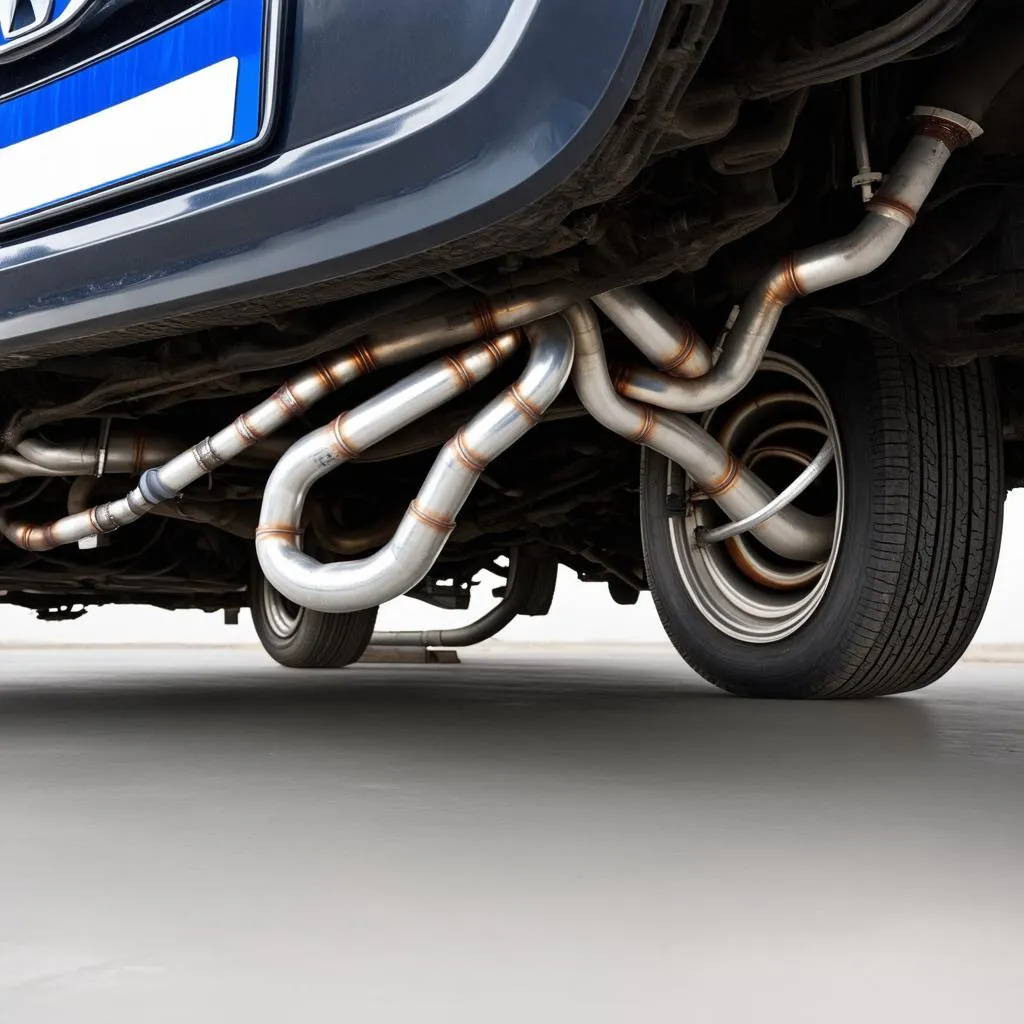“A stitch in time saves nine.” This old proverb aptly applies to car maintenance. Ignoring warning signs can lead to costly repairs down the line. One such warning sign is the dreaded OBD code P0420, which pops up in your Honda Odyssey and often leaves you scratching your head.
What is OBD Code P0420?
OBD stands for “On-Board Diagnostics.” It’s a system in your car that monitors various components and emissions. When a problem arises, the system triggers a diagnostic trouble code, like P0420.
This code specifically relates to your car’s catalytic converter. This crucial component is responsible for converting harmful exhaust gases into less harmful emissions.
Why Does My Honda Odyssey Display P0420?
Understanding the Code’s Meaning
The code P0420 signals that the catalytic converter is not functioning properly. It indicates that the efficiency of the catalytic converter has dropped below a certain threshold, meaning it’s not effectively converting harmful gases into less toxic ones.
Causes of P0420:
The “why” behind this code can vary, and it’s essential to understand the potential causes:
- Catalytic Converter Failure: This is the most common reason. The converter can get clogged, damaged, or simply worn out due to age or mileage.
- O2 Sensor Issues: Your Honda Odyssey uses oxygen sensors to monitor the exhaust gases. If one or both of these sensors are faulty, it can trigger P0420 even if the catalytic converter itself is functioning properly.
- Fuel System Problems: Issues like a leaking injector, a faulty fuel pump, or even incorrect fuel mixture can lead to excess fuel entering the catalytic converter, causing it to overheat and fail.
- Exhaust Leaks: A leak in the exhaust system can bypass the catalytic converter, leading to incorrect readings from the O2 sensors and triggering the P0420 code.
Symptoms of P0420
Besides the code itself, you may notice other symptoms:
- Check Engine Light: The check engine light will come on, accompanied by the P0420 code when you use an OBD scanner.
- Reduced Fuel Economy: The engine will struggle to maintain optimal performance, potentially leading to decreased fuel efficiency.
- Rough Idle or Stalling: A malfunctioning catalytic converter can disrupt the airflow and cause a rough idle or even engine stalling.
- Exhaust Smell: You may notice a strong smell of sulfur or rotten eggs coming from the exhaust.
How to Fix P0420: A Step-by-Step Guide
- Identify the Root Cause: The first step is to diagnose the root cause of the problem. Use an OBD scanner to read the code and check for any other related codes.
- Inspect the Catalytic Converter: Visually inspect the catalytic converter for any signs of damage, corrosion, or excessive heat buildup. This may require removing the catalytic converter for a thorough inspection.
- Replace O2 Sensors: If the catalytic converter appears to be in good condition, replace the oxygen sensors.
- Repair Exhaust Leaks: Check for exhaust leaks and have them repaired.
- Address Fuel System Issues: Inspect the fuel system for any leaks, faulty injectors, or other problems that could contribute to a rich fuel mixture.
What Does an Expert Say?
Dr. Mark Johnson, a renowned automotive engineer and author of “The Complete Guide to Car Maintenance,” recommends, “A key to fixing P0420 is to avoid jumping to conclusions. Often, simply replacing the catalytic converter won’t address the real issue. Thorough diagnostics are crucial.”
P0420 and the Spiritual Dimension
While some may see P0420 as just a mechanical problem, others might view it as a sign to recalibrate their relationship with the Earth. As we rely more and more on automobiles, a reminder of our impact on the environment is crucial. This code is a gentle nudge to be mindful of our carbon footprint and explore sustainable transportation alternatives.
Commonly Asked Questions
- Can I drive with P0420? While you can still drive with P0420, it’s best to address the issue promptly to prevent further damage and potential safety risks.
- Is it expensive to fix P0420? Repair costs can vary depending on the specific cause and the location of the repair. A catalytic converter replacement can be costly, but it’s often more affordable than other repairs.
- Can I reset P0420? You can reset the code using an OBD scanner, but that won’t fix the underlying problem. The code will reappear unless the issue is addressed.
Similar Codes and Products
If you’re researching P0420, you might also come across other related OBD codes, such as:
- P0421: Catalyst System Efficiency Below Threshold (Bank 1)
- P0422: Catalyst System Efficiency Below Threshold (Bank 2)
- P0430: Catalyst System Efficiency Below Threshold (Bank 1 or 2)
You might find these products useful:
- OBD2 Scanners: These devices allow you to read and clear diagnostic trouble codes.
- Catalytic Converter Replacement Kits: These kits include a new catalytic converter and all the necessary hardware for installation.
Supported Vehicles
This code and its potential solutions apply to a wide range of vehicles, including but not limited to:
- Honda Odyssey
- Honda Civic
- Honda Accord
- Toyota Camry
- Nissan Altima
Additional Resources on TechCarUSA.com
For more in-depth information on OBD codes, car maintenance, and troubleshooting, explore other articles on TechCarUSA.com. You can find articles on:
- OBD Code Dictionary: A comprehensive guide to various OBD codes.
- DIY Car Maintenance Tips: Learn how to perform basic car maintenance tasks at home.
- Car Repair Costs: Estimate the cost of common car repairs.
Call to Action
If you’re facing a P0420 code and need expert assistance, contact us on Whatsapp: +84767531508. Our team of certified technicians is available 24/7 to help you diagnose and resolve the issue.
 OBD Scanner
OBD Scanner
 Catalytic Converter
Catalytic Converter
Conclusion
The P0420 code can be a frustrating experience, but by understanding the causes and potential solutions, you can take control of the situation. Remember to perform thorough diagnostics, address the root cause, and prioritize the well-being of both your car and the environment.
Let us know in the comments below if you have any questions or experiences with P0420. We’re here to help!